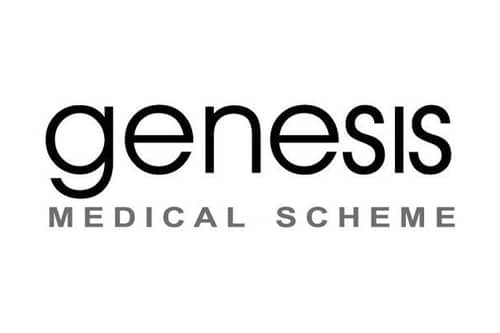Cosmetic surgery
Cosmetic Surgery and Procedures: Enhancing Appearance and Boosting Confidence
Cosmetic surgery and procedures are medical interventions aimed at enhancing a person’s appearance, improving self-esteem, and promoting a positive self-image. These elective treatments encompass a wide range of techniques that address various aesthetic concerns, from facial rejuvenation to body contouring. While often associated with vanity, cosmetic procedures can have significant psychological, emotional, and even physical benefits for individuals seeking to achieve their desired look. This article delves into the world of cosmetic surgery, exploring its diverse procedures, motivations, safety considerations, and potential impact on patients’ well-being.
1. Types of Cosmetic Procedures
Cosmetic procedures cover a broad spectrum, addressing both surgical and non-surgical treatments:
Surgical Procedures:
- Rhinoplasty (Nose Job): Reshaping the nose to improve its size and symmetry.
- Breast Augmentation: Enhancing breast size and shape using implants or fat transfer.
- Liposuction: Removing excess fat from targeted areas to improve body contour.
- Facelift: Tightening facial muscles and removing excess skin to reduce signs of aging.
- Abdominoplasty (Tummy Tuck): Removing excess skin and fat from the abdomen to achieve a more toned appearance.
Non-Surgical Procedures:
- Botox and Fillers: Injectables to smooth wrinkles, restore volume, and rejuvenate the face.
- Laser Hair Removal: Reducing unwanted hair using laser technology.
- Chemical Peels: Exfoliating the skin to improve texture, tone, and reduce fine lines.
- Microdermabrasion: Mechanical exfoliation to improve skin texture and appearance.
- CoolSculpting: Non-invasive fat reduction by freezing and eliminating fat cells.
2. Motivations for Cosmetic Procedures
The motivations behind seeking cosmetic procedures are diverse and multifaceted. Some individuals opt for these treatments to address specific aesthetic concerns or correct perceived flaws. Others may seek cosmetic interventions to enhance their self-confidence, boost self-esteem, or regain a sense of control over their appearance. While societal pressures and media influence can play a role, many people pursue cosmetic procedures for deeply personal reasons that extend beyond superficial beauty.
3. Psychological and Emotional Benefits
Cosmetic procedures can have positive psychological and emotional effects on individuals. Research suggests that patients often experience improved self-esteem, body image, and overall life satisfaction following successful procedures. By aligning their external appearance with their self-perception, individuals may experience a boost in confidence that positively impacts their personal and professional lives.
4. Safety Considerations and Medical Expertise
Safety is paramount in cosmetic procedures. It’s crucial for patients to choose qualified and experienced medical professionals who operate in accredited facilities. Before undergoing any procedure, patients should have a comprehensive consultation to discuss their goals, expectations, potential risks, and postoperative care. Understanding the realistic outcomes and limitations of a procedure is essential to making an informed decision.
5. Ethical and Psychological Considerations
The ethical implications of cosmetic procedures often center around patient autonomy, informed consent, and responsible medical practice. Medical professionals should prioritize the physical and psychological well-being of their patients, ensuring that their motivations are healthy and that their expectations are realistic. It’s also important to be mindful of the potential for body dysmorphic disorder (BDD), a mental health condition where individuals obsessively focus on perceived flaws in their appearance.
Conclusion
Cosmetic surgery and procedures offer individuals the opportunity to enhance their appearance, improve self-confidence, and achieve their aesthetic goals. While these interventions are often portrayed superficially, they have the potential to significantly impact patients’ emotional and psychological well-being. Patients should carefully consider their motivations, seek reputable medical professionals, and have realistic expectations when pursuing cosmetic treatments. Ultimately, the field of cosmetic procedures provides individuals with the tools to enhance their self-image, leading to a more positive and fulfilling quality of life.
References:
- Sarwer DB, Cash TF, Magee L, Williams EF, Thompson JK, Roehrig M. Female college students and cosmetic surgery: an investigation of experiences, attitudes, and body image. Plastic and Reconstructive Surgery. 2005;115(3):931-938.
- Rumsey N, Harcourt D. Body image and disfigurement: issues and interventions. Body Image. 2004;1(1):83-97.
- Frederick DA, Peplau LA, Lever J. The swimsuit issue: Correlates of body image in a sample of 52,677 heterosexual adults. Body Image. 2006;3(4):413-419.
- Honigman RJ, Phillips KA, Castle DJ. A review of psychosocial outcomes for patients seeking cosmetic surgery. Plastic and Reconstructive Surgery. 2004;113(4):1229-1237.
- American Society of Plastic Surgeons. (n.d.). Safety Guidelines for Outpatient Plastic Surgery Facilities. Retrieved from https://www.plasticsurgery.org/for-medical-professionals/health-policy/safety-guidelines-for-outpatient-plastic-surgery-facilities
- Veale D, Anson M, Miles S, Pieta M, Costa A, Ellison N. Psychological distress in those with perceived appearance flaws. AAT. 2014;19(4):281-287.
- Veale D. Advances in a cognitive behavioural model of body dysmorphic disorder. Body Image. 2004;1(2):113-125.
- Sarwer DB, Crerand CE. Body dysmorphic disorder and appearance enhancing medical treatments. Body Image. 2008;5(1):50-58.


































